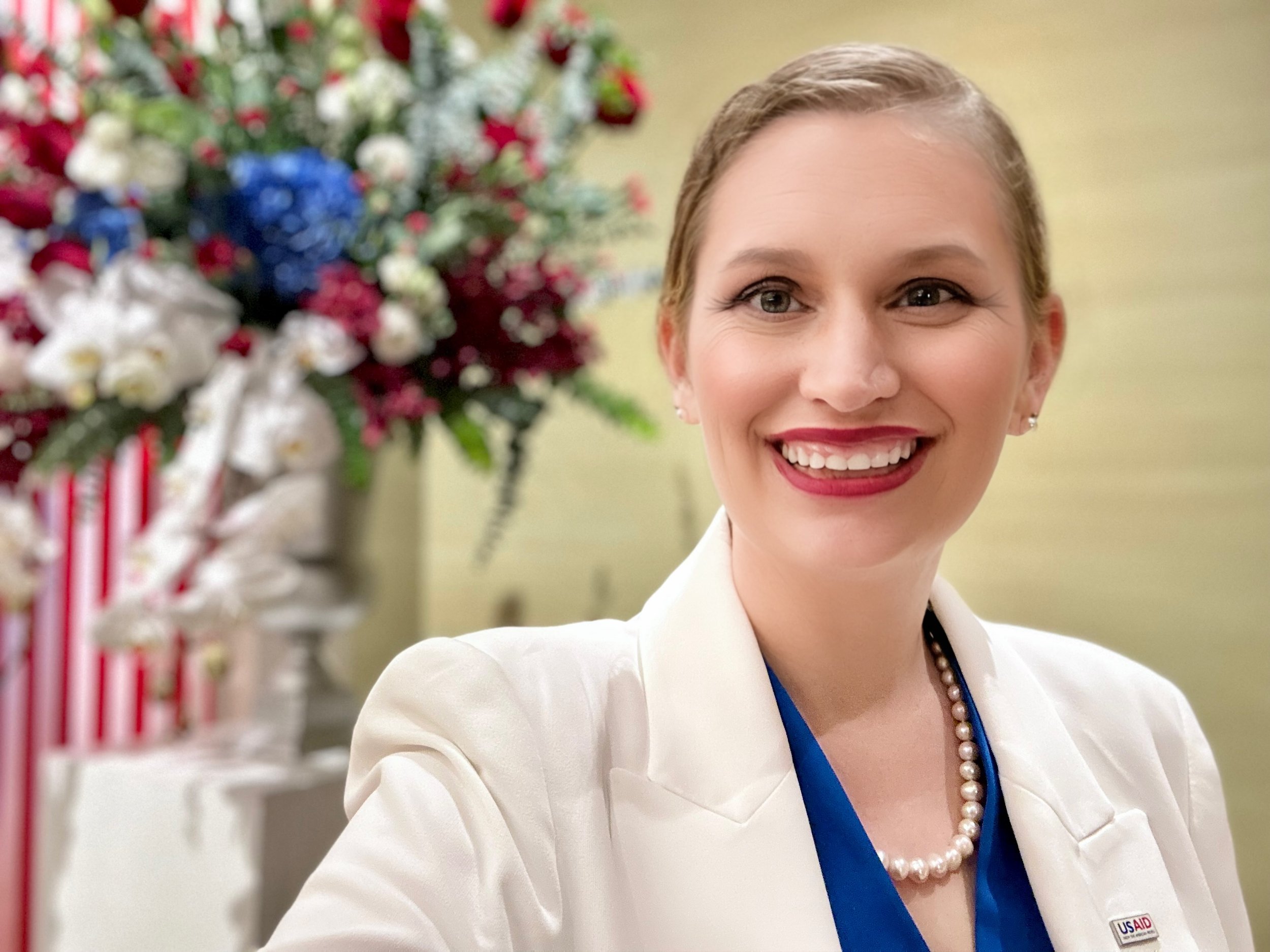
Strategic Leader in Policy, Governance, and Public Sector Innovation
About Me
I work with policy, technology, and international cooperation to transform strategy into impact.
Over the past fifteen years, I’ve led multi-million-dollar portfolios and built high-performing teams across Asia, Africa, and Washington, D.C. At the U.S. Agency for International Development, I’ve managed everything from billion-dollar budgets to multilateral diplomacy and startup-scale innovation. I’ve negotiated with ministers, briefed the White House, built enterprise data systems, and supported regional coalitions working toward a healthier, more democratic, and more prosperous world.
My work is grounded in a belief that good policy unlocks potential. It creates space for innovation and global cooperation. I
I’m now looking to take that experience into new spaces by supporting new partnerships, building smarter systems, and working with teams that want to shape what comes next.
What I Do
-
I’ve led planning, budgeting, and performance monitoring for portfolios up to $300M across more than 20 countries.
-
I’ve developed regional strategies and diplomatic platforms, engaging ASEAN, ECOWAS, the UN, and U.S. interagency partners.
-
I’ve built enterprise data systems at USAID, integrated AI into federal reporting, and supported digital transformation at scale.
-
I’ve briefed Congress, the NSC, and presidential transition teams. I have coordinated with multilateral donors and defense actors across regions.
-
From classroom to boardroom, I’ve designed leadership programs, built university partnerships, and trained over 1,000 emerging professionals.
-

15+ Years of Public Sector Strategy
Advised on policy, technology, and cross-border collaboration for U.S. agencies and global institutions.
-

30+ Countries Served
Led multi-sector development and security programs across Asia and Africa, managing strategy, compliance, and results.
-

$300 Million+ Portfolios Managed
From Ghana to Thailand, I’ve partnered with governments, civil society, and donors to deliver context-driven, accountable programs.
Featured Projects
-
Context: During a pivotal shift in U.S. education policy, with most states adopting the Common Core standards, a global education nonprofit serving over 100,000 students faced pressure to demonstrate alignment without compromising its international curriculum or mission. How could they stay relevent as the U.S. standardized it’s curriculum?
My Role: As the organization’s first Policy Analyst, I supported U.S. policy engagement during this reform window. I produced strategic guidance, interpreted regulatory shifts, and helped shape the organization’s alignment strategy. Critically, I organized policy sessions with the architects of the Common Core, creating a direct channel for dialogue, clarification, and trust-building between the nonprofit and U.S. education leaders.
Results:
Crafted a policy roadmap that positioned the organization’s curriculum as Common Core-compatible, securing continued access to public school markets.
Facilitated multi-state outreach, helping districts and state agencies confidently adopt the program.
Bolstered the organization’s reputation as a globally valid yet locally relevant credential, improving both uptake and higher education recognition.
What Made It Work:
Translated complex educational standards into clear, actionable insights for internal and external stakeholders.
Leveraged strategic convenings with national policymakers to reduce uncertainty and build institutional alignment.
Navigated sensitive reform dynamics with a balance of diplomacy, technical clarity, and mission-driven focus.
-
Context: Following new policies that enabled traditional authorities in South Africa to manage resource revenue, a tribal trust in the North West Province sought to invest in education as a long-term development priority. The challenge: transform mining income into meaningful early childhood outcomes in a rural, under-resourced setting.
My Role:
As a Tinker Walker Fellow, I was embedded with the tribal leadership to co-develop a sustainable, culturally grounded education initiative. I conducted field assessments, supported strategic planning, and facilitated knowledge exchange between community leaders and education experts. I also co-authored a Setswana-language manual to guide caregivers in early childhood learning practices.Results:
Supported the launch of the first locally managed early childhood education program in the community, reaching 150+ children within its first year.
Trained over 20 volunteer caregivers and helped design a system for monitoring child development and household engagement.
Advised the tribal council on governance and resource allocation frameworks to ensure accountability and continuity.
What Made It Work:
Rooted the strategy in local language, cultural norms, and community trust.
Bridged traditional governance and modern development planning through hands-on collaboration.
Focused on capacity-building, not external delivery, ensuring ownership and long-term viability.on
-
Context: To improve the visibility of women in global science leadership, a policy research nonprofit needed a way to track how major international science prizes influenced health research agendas and gender equity in innovation funding. The problem: no centralized, reliable data source existed to analyze long-term patterns across disciplines and geographies.
My Role: As a Project Coordinator, I led the development and refinement of a structured research database capturing award data, laureate demographics, institutional affiliations, and policy impacts. This work involved identifying source inconsistencies, building custom taxonomies, and collaborating with researchers and communications staff to shape how the data would be used.
Results:
Delivered a comprehensive, searchable dataset that became the backbone of the organization’s advocacy and publications strategy.
Enabled new analysis on gender representation in elite science recognition, directly informing policy recommendations to NIH, NSF, and international research councils.
Improved data completeness and quality, allowing for clearer storytelling and stronger evidence in support of equity-focused reforms in science funding.
What Made It Work:
Applied structure to ambiguity, turning messy, inconsistent information into a usable knowledge system.
Anticipated user needs, balancing technical rigor with accessibility for non-specialist audiences.
Used the project to bridge research and policy, showing how better data can power better decisions.
Contact Me.
jen@jencarv.com
Washington, DC
